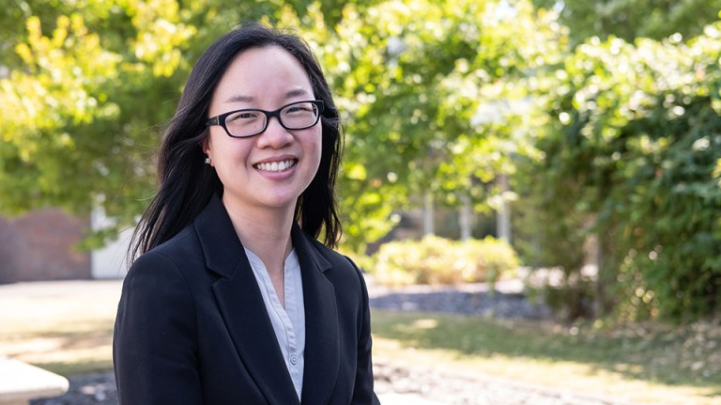Enhancing community energy resilience, QSAND and Loughborough University Research collaboration

|
| Dr Long Seng To. Photo Credit: Loughborough University. |
Goal number 7 of the UN Sustainable Development Goals (SDGs) is to ‘…ensure access to affordable, reliable, sustainable and modern energy for all’. From 2000 to 2016, the proportion of the global population with access to electricity increased from 78 per cent to 87 per cent, but that still leaves just under 1 billion people worldwide living without electricity. Finding energy solutions for people in developing countries is therefore of great importance in progressing towards SDG 7.
QSAND, a shelter and settlement sustainability self-assessment tool developed by BRE, focuses on sustainable, resilient energy solutions through its energy component.
BRE were therefore happy to contribute towards a proposal for the Engineering for Development research fellowship funded by the Royal Academy of Engineering when approached by Loughborough University.
Dr Long Seng To’s project, titled ‘Enhancing community energy resilience using renewable energy in developing countries’, was to focus on finding solutions for the provision of affordable, reliable, and sustainable energy for all, globally, with part of the research focusing on the energy component of QSAND. Dr To has been awarded a five-year Engineering for Development Research Fellowship and will be undertaking projects in Nepal and Malawi with QSAND as one strand of her research focus. The research aims to use participatory design methods to include community members, engineers, academics and local government in the creation of resilient energy solutions.
Dr To said that the fellowship will enable her to; “…unlock local sources of innovation for decentralised, networked and resilient energy systems”.
The aim of this research is closely linked to the goals of the QSAND tool, which also has a focus on the use of local resources and expertise in developing resilience and sustainability in the aftermath of disasters. This research will hopefully provide valuable insight into ways to further develop the tool in order to support local innovation in the creation of sustainable energy solutions.
Yetunde Abdul, QSAND Programme Manager said; “We are excited to support this research and the development of the energy component of QSAND moving forward. This project will provide some very useful data on QSAND’s energy component, and we hope that QSAND can support the implementation of sustainable and resilient energy systems in Nepal and Malawi’.
The research will support the SDGs and, by helping to evaluate and build upon QSAND’s energy component. It should also assist QSAND to improve its own contribution to reaching the SDGs by 2030. This is a great opportunity to gather evidence that can help QSAND to demonstrate its endorsement of the UN development goals.
Dr To said; “I am excited to be collaborating with BRE to further develop the energy component of QSAND and integrate my research directly into engineering practice. As QSAND covers multiple sectors such as shelter, water and sanitation, communications, and waste, this will put energy resilience in a broader infrastructure context.”
This article was originally published by BRE Buzz on 12 December 2018 at: http://brebuzz.net/2018/12/12/enhancing-community-energy-resilience-qsand-and-loughborough-university-research-collaboration/
--BRE Buzz
[edit] Related articles on Designing Buildings Wiki
Featured articles and news
Statement from the Interim Chief Construction Advisor
Thouria Istephan; Architect and inquiry panel member outlines ongoing work, priorities and next steps.
The 2025 draft NPPF in brief with indicative responses
Local verses National and suitable verses sustainable: Consultation open for just over one week.
Increased vigilance on VAT Domestic Reverse Charge
HMRC bearing down with increasing force on construction consultant says.
Call for greater recognition of professional standards
Chartered bodies representing more than 1.5 million individuals have written to the UK Government.
Cutting carbon, cost and risk in estate management
Lessons from Cardiff Met’s “Halve the Half” initiative.
Inspiring the next generation to fulfil an electrified future
Technical Manager at ECA on the importance of engagement between industry and education.
Repairing historic stone and slate roofs
The need for a code of practice and technical advice note.
Environmental compliance; a checklist for 2026
Legislative changes, policy shifts, phased rollouts, and compliance updates to be aware of.
UKCW London to tackle sector’s most pressing issues
AI and skills development, ecology and the environment, policy and planning and more.
Managing building safety risks
Across an existing residential portfolio; a client's perspective.
ECA support for Gate Safe’s Safe School Gates Campaign.
Core construction skills explained
Preparing for a career in construction.
Retrofitting for resilience with the Leicester Resilience Hub
Community-serving facilities, enhanced as support and essential services for climate-related disruptions.
Some of the articles relating to water, here to browse. Any missing?
Recognisable Gothic characters, designed to dramatically spout water away from buildings.
A case study and a warning to would-be developers
Creating four dwellings... after half a century of doing this job, why, oh why, is it so difficult?
Reform of the fire engineering profession
Fire Engineers Advisory Panel: Authoritative Statement, reactions and next steps.
Restoration and renewal of the Palace of Westminster
A complex project of cultural significance from full decant to EMI, opportunities and a potential a way forward.
Apprenticeships and the responsibility we share
Perspectives from the CIOB President as National Apprentice Week comes to a close.

























